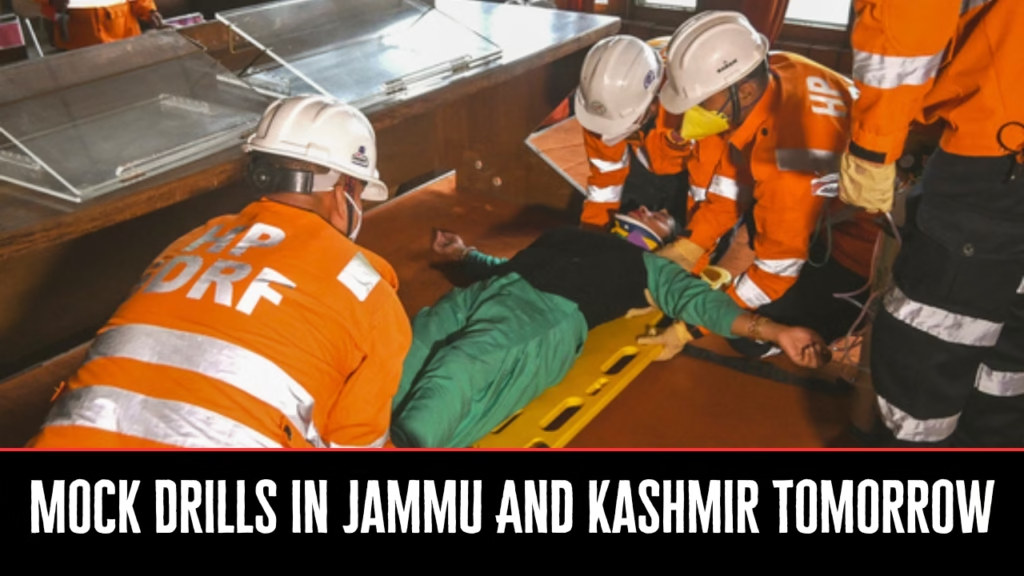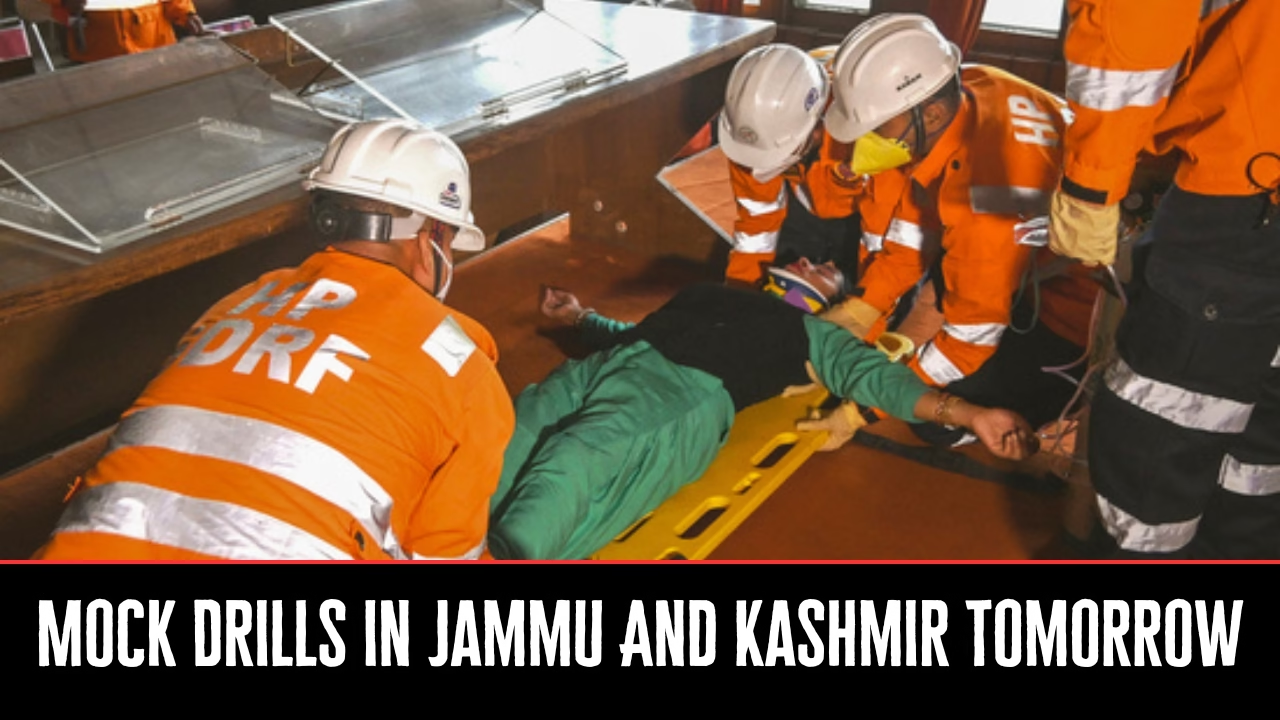Mock Drills in Jammu And Kashmir Tomorrow: In light of recent cross-border tensions, civil defence mock drills are set to take place tomorrow across several Indian states bordering Pakistan including Jammu and Kashmir.
Contents
Why the Drills Are Being Conducted
On Thursday, the Government of India will conduct large-scale civil defence mock drills in four sensitive states — Jammu and Kashmir, Punjab, Rajasthan, and Gujarat. These states have all recently experienced the impact of escalating tensions between India and Pakistan.
This exercise is not just a routine check-up. It comes in the wake of Operation Sindoor, India’s powerful military retaliation earlier this month, following the Pahalgam terror attack on April 22 that killed 26 civilians. That operation reportedly targeted terror hubs across the Line of Control, including areas in Pakistan-occupied Jammu and Kashmir (PoJK). In response, Pakistan also launched airstrikes on Indian territories, forcing both countries into a tense military standoff before agreeing to a ceasefire on May 10.
The mock drills in Jammu and Kashmir tomorrow aim to test India’s civil defence readiness in case of renewed aggression.
What Will Happen During the Drills?
As per government officials, these mock drills are being organised by the Ministry of Home Affairs (MHA) and are meant to assess:
- Emergency alert systems like air raid sirens
- Coordination between police, civil defence teams, and disaster response units
- Evacuation planning and public safety training
- Readiness of hospitals and rescue teams
- Blackout drills in high-risk areas

The drills will include the use of sirens, simulated attacks, crowd evacuation scenarios, and briefings for civilians on how to protect themselves during an emergency. In some areas, especially in border towns, a 15-minute blackout may be enforced around 8 PM to mimic real wartime conditions — though emergency services like hospitals and police will continue running.
Where Are the Drills Taking Place?
The key states where drills will be held are:
- Jammu and Kashmir – Particularly in districts near the Line of Control
- Punjab – Border districts like Pathankot, Amritsar, and Ferozepur will be involved
- Rajasthan – Areas like Barmer, which lies close to the Pakistan border
- Gujarat – Especially Kutch and other frontier regions
IAS officer Tina Dabi, the District Collector of Barmer, confirmed that these drills are being carried out under strict instructions from the Central Government.
In addition, Haryana will also conduct a large-scale defence drill titled “Operation Shield” on the same day across all 22 districts. This is part of a broader national effort to enhance civilian preparedness.
Why This Matters to the Common Citizen
If you live in Jammu and Kashmir or one of the participating states, you might hear air raid sirens or notice sudden traffic control, public announcements, or even mock evacuations tomorrow evening.
Here’s what residents need to keep in mind:
- Stay calm – These are planned drills and not real threats
- Follow instructions from local authorities and volunteers
- Don’t spread rumours or misinformation on social media
- Participate actively if you’re asked to evacuate or take cover
The goal is to prepare everyone for worst-case scenarios — whether it’s a terrorist attack, a cross-border shelling, or a natural disaster. It’s about learning how to respond, not panic.
A Throwback to Operation Abhyaas
This isn’t India’s first attempt at nationwide emergency drills. On May 7, the MHA had already carried out Operation Abhyaas, involving 244 districts across the country. That was just hours before India launched Operation Sindoor.
That earlier drill also featured:
- Air raid sirens
- School evacuations
- Awareness sessions on basic civil defence tactics
- Coordination between NCC, NSS, Scouts and Guides
These exercises mark India’s most serious push in decades to build civilian awareness around national security issues — something not seen since the 1971 war with Pakistan.
A Message from the Top
Prime Minister Narendra Modi, speaking in Gandhinagar recently, made it clear that India’s actions are no longer limited to a “proxy war.” He emphasized that terrorists are now being given state honours in Pakistan — showing that terrorism is deeply tied to the neighbouring country’s military intent.
Modi said:
“After May 6, we can no longer call it a proxy war. It’s a direct threat, and India is responding with clarity. Our actions are filmed and archived — there’s no doubt about our stand.”
He added that India seeks peace but will not shy away from defending itself forcefully if provoked.
With mock drills in Jammu and Kashmir tomorrow, this isn’t just a rehearsal — it’s a powerful reminder of how quickly peace can turn fragile. From students to shopkeepers, everyone needs to know what to do if disaster strikes.
Also Read – Motorola Razr 60 Launched in India at ₹49,999: 6.96″ Foldable Display, Dimensity 7400X, Android 15 & More
These drills are not just about readiness — they’re about resilience. They remind us that in today’s world, being alert is as important as being brave.
So if you hear a siren, see people gathering, or get notified about an evacuation drill — don’t panic. Instead, be proud that you’re part of a country that’s preparing for any emergency.

